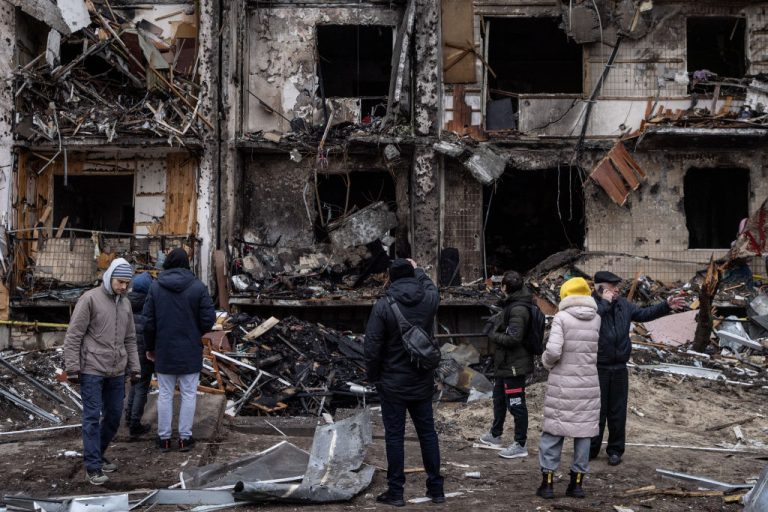Russia’s military operations in Ukraine have persisted for a month and accounts of civilian casualties and struggles have naturally emerged. However, between inaccurate media coverage and the unreliability of the Internet, there is no clear picture of what’s really happening in Ukraine.
Death and destruction
As of Saturday, Mar. 19, the Office of the United Nations (UN) High Commissioner for Human Rights (OHCHR) reported that there were 2,361 civilian casualties recorded, including 902 deaths and 1,459 wounded. Among the fatalities, there were 827 adults and 75 children.
The OHCHR noted that the casualty count may be higher than the official record.
While death and destruction inflicted upon civilians have been heavily broadcast across global media, the validity of these reports and the impact of the Russian attacks remain unclear.
For example, in the city of Mariupol, Ukraine claimed that hundreds were killed after a theater and a maternity hospital were bombed by Russian forces. The State Emergency Service (SES) of Ukraine also claimed that a university and several buildings were shelled on Friday, Mar. 18, killing one and injuring 11.
Success
You are now signed up for our newsletter
Success
Check your email to complete sign up
In the city of Merefa, several sources reported that 21 people have been killed after a school and a community center were destroyed by missile strikes.
Unfortunately, it is difficult to verify the claims, since rescuers have found it difficult to reach the sites while the firefights continue.
In contrast to global media reports, Russia claims that it has not been deliberately attacking civilians. The Kremlin noted that its bombardments of civilian locations were accidental and collateral damage. Russian weapons had misfired.
Russia also said that Ukrainian citizens were in close proximity to its own armed forces, making them unfortunately close to the crossfire.
In a decision that is criticized by Western nations, the Kremlin will not decide on the “resolution on the humanitarian situation in Ukraine.” But Russia has not withdrawn the resolution altogether, Russian ambassador Vassily Nebenzia said at the UN Security Council on Thursday, Mar. 17.
READ MORE:
Civilian plight
Putin launched the invasion claiming to “demilitarize” Ukraine and purge the leadership of extremist “Nazi” influence. Russia previously annexed the Crimea peninsula from Ukraine in 2014 amidst more than a decade of controversy between Moscow and the West over Ukraine, a former territory of the Russian Empire and the Soviet Union. Russia does not want Ukraine to be a member of the North Atlantic Treaty Organization (NATO) or the European Union (EU).
While both Russia and Ukraine allege different agendas for the conflict, civilians are suffering in the war-torn country. Images across Ukraine have helped illustrate what civilians go through in a modern war. Buildings, such as apartments and other residential areas, have been leveled to the ground; citizens, wounded or dead, lay in stretchers; and millions have fled to other parts of Europe, including Poland, Romania, Moldova, Hungary, Slovakia, Russia, and Belarus.
The Guardian interviewed five Ukrainians over their shared experiences about the invasion. One of them, a journalist named Evgenija, said that she found it impossible to believe that war was happening.
An English teacher in Kharkiv, Nika, expressed her shock and bewilderment over the possibility of Russian occupation.
Graphic designer Vik expressed the “crushing” news of the attacks.
Data scientist Karina, who is in the Middle East, shared her despair for her parents who are still in Ukraine. In contrast, her sister in Russia believes that Ukraine is at fault for starting the war.
Law graduate Dmytro, 24, said that he was returning home from Geneva to join the Ukrainian army, fearful for his family in Kyiv, Ukraine.
Much like Karina, rescue dog owner Oleksandra said that her mother in Moscow believed Russian President Vladimir Putin’s narrative of the war, as told by BBC.
Anti-war protests in Russia have been suppressed as thousands of Russians have been arrested in several cities, including Moscow.
READ MORE:















